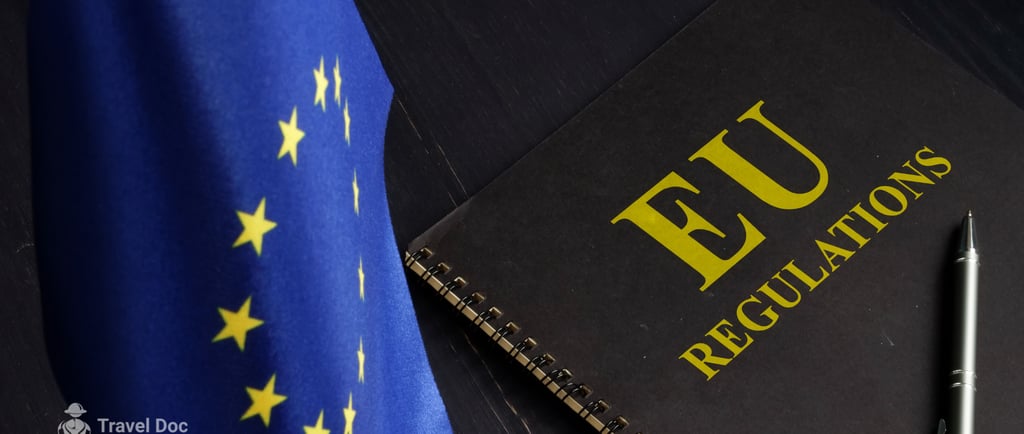🌍 Europe 2025: Border Controls Return – What You Must Know
In 2025, many Schengen countries will reopen their internal borders because they are worried about migration and security. During your trip across Europe this year, you can expect to have your ID checked, wait longer, and possibly run into problems. If you want to plan around any of these countries, here is a full list of them.


Quick Overview
Several Schengen countries have reinstated internal border checks in 2025. This marks a significant shift from the visa‑free ideal, affecting travelers across Europe. Here's everything you need to stay informed and prepared.
Which Countries Have Reinstated Border Controls?
Based on recent data, at least 10–11 Schengen countries have brought back internal border checks due to security and migration concerns:
Germany: Controls at land borders with France, Belgium, Netherlands, Luxembourg, Denmark, Austria, Poland, Switzerland, Czech Republic. In place since Sept 2024 and extended through mid‑Sep 2025.
France: Checks at borders with Belgium, Germany, Spain, Italy; renewed from Nov 2024, extended to April 30, 2025 and beyond.
Netherlands: ID checks at airports, ferry terminals, land borders with Germany, Belgium; active from Dec 2024 to June 2025.
Austria, Italy, Slovenia, Denmark, Sweden, Norway, Bulgaria, and Poland have also implemented or extended internal controls.
Why the Sudden Change?
The reintroduction of these checks is grounded in serious concerns under Articles 25 & 29 of the Schengen Borders Code:
Irregular migration: Rising flows through Ukraine and the Western Balkans.
Security threats: Fear of terrorism, criminal networks, sabotage linked to Ukraine/Russia conflicts.
Major public events: Olympic-related security in France and the Vatican Jubilee in Italy.
EU law permits temporary checks — but only as a last-resort, time‑limited measure to address serious threats.
How Long Will These Controls Last?
Many countries have extended the controls into late 2025:
Germany: Until 15 September 2025.
France: Renewed past April 30, 2025.
Netherlands: Up to 8 June 2025.
Other nations (Austria, Denmark, Italy, Slovenia, Sweden, Norway, Bulgaria) have set extensions through mid‑2025 or beyond.
Since conditions may change, always verify updates before traveling.
What Travelers Should Expect
Document checks: Passport or EU ID could be inspected even when crossing within the Schengen zone.
Extra time: Allow for an additional 30–60 minutes when crossing by car, train, or ferry.
Recommended travel kit:
Valid passport or EU national ID
Flight or accommodation details
Buffer time built into tight schedules
Awareness of event or protest zones
Future Border Landscape: EES & ETIAS
Two major EU-wide systems are rolling out in 2025–2026:
1. Entry/Exit System (EES)
Launching October 2025, phased across six months; fully implemented by March 2026 .
Non‑EU nationals must provide biometric data (fingerprints, facial scan, passport details) electronically — eliminating stamps.
Exemptions: young children (< 12), residents with long-stay visas, EU relatives.
2. ETIAS (Electronic Travel Info & Authorisation System)
Coming in the last quarter of 2026.
Visa‑exempt travelers (incl. UK) must apply online (~€7–€20 fee); valid for 3 years or until passport expires.
Plan Ahead: Pre‑Travel Checklist
Task Why It Matters ✔️ Check official updates Regulations may be extended unexpectedly ✔️ Pack valid ID Frequent checks demand prompt compliance ✔️ Build in buffer time Border queues can setup quickly ✔️ Prepare for new systems Know the procedures for EES & ETIAS
Final Thoughts
Schengen remains open — but the freedom to roam is undergoing transformation. With rising security concerns and migration pressures, temporary border controls are increasingly common. And with EES launching October 2025 and ETIAS in late 2026, two major systems will further reshape how travelers enter Europe.
Staying prepared — carrying ID, allowing time, and remaining informed — ensures a smoother travel experience in 2025 and beyond.
